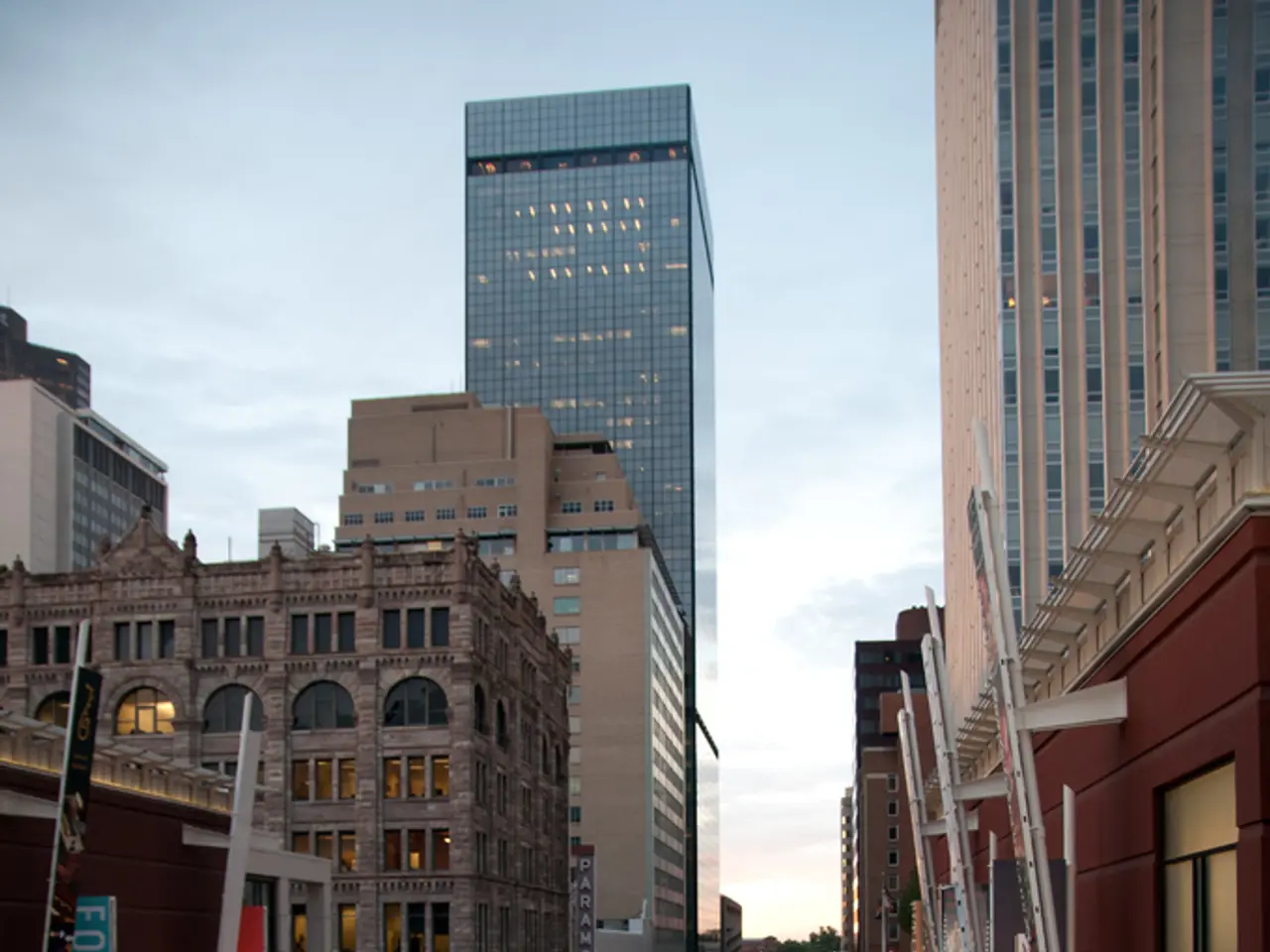Beijing Issues Warning to Hong Kong Demonstrators
In the heart of Asia, the city of Hong Kong has been witnessing a significant shift in its political landscape. The pro-democracy movement, which once resonated with a vibrant energy, has been noticeably subdued, with the Chinese government's stringent enforcement of the National Security Law playing a pivotal role [1][3].
The movement, which began as a call for direct election of a new leader, an investigation into police brutality, and an end to the extradition bill to China, has been met with a harsh response from Beijing [2]. Since the imposition of the National Security Law in 2020, freedoms of expression, association, and assembly have been systematically dismantled, leading to the disappearance or disbanding of many pro-democracy groups [2].
The typically lively July 1 pro-democracy rallies, once a significant annual event, have transformed into tightly controlled and sombre affairs, with public participation heavily restricted [1]. In their place, patriotic imagery and government-controlled events have taken centre stage, as pro-Beijing supporters actively display their loyalty [1].
Beijing officials continue to emphasise the need for strict security measures, with Xia Baolong, the director of China's Hong Kong and Macao Work Office, acknowledging ongoing "soft resistance" and external interference, but maintaining that the National Security Law has transformed Hong Kong from "chaos to order" [4]. Authorities have shown no signs of relaxation in their hardline stance, with prominent pro-democracy figures like Joshua Wong facing charges [4].
In a recent development, the top Chinese official for Hong Kong affairs issued a warning, stating "those who play with fire will perish by it," implying the potential for more pro-Beijing counter-protests in Hong Kong. These counter-protests may involve activities such as singing the Chinese anthem, raising the Chinese flag, or actions by white-shirted thugs who have previously targeted protesters [3].
The Chinese government has ignored the demands of the protesters in its recent statements, and has threatened not to sit idly by if protests spin out of control [3]. The government views the protests as a foreign conspiracy designed to destroy China's economy [3].
Interestingly, people in mainland China tend to see Hongkongers as spoiled and view the protests as a nuisance [5]. The Hongkongers, who enjoy a comfortable standard of living and special economic privileges under Chinese rule, are perceived as having no need for such protests [5].
Despite this, the Chinese government has not specified what other measures it will take to quell the protests in Hong Kong [6]. However, it has stated that it will call on its supporters in Hong Kong to "stand up and firmly protect the homeland" [7].
In the midst of this, China is responding by increasing its influence on Hong Kong, and has accused the U.S. of meddling and encouraging the protests in Hong Kong [7]. The Chinese government's comments were broadcast in both Hong Kong and mainland China, signalling a firm stance on the issue.
As the 70th anniversary of the Chinese government's founding approaches on October 1, it is likely that they will take further measures to quell protests before this date to avoid protests occurring during the celebration [1]. The future of Hong Kong's pro-democracy movement remains uncertain, but one thing is clear: the Chinese government persists in its efforts to maintain stability and security in the city, regardless of the cost to dissent and democracy.
- The Chinese government's efforts to maintain stability in Hong Kong extend beyond the enforcement of the National Security Law, as it continues to call on its supporters to protect the homeland and quell the pro-democracy protests.
- The Hong Kong economy is not the only aspect affected by the ongoing war-and-conflicts and politics, as the Chinese government's response to the pro-democracy movement has led to a shift in general-news headlines, with crime-and-justice incidents escalating due to increased government scrutiny and counter-protests.
- The Chinese government's stance on the pro-democracy movement in Hong Kong is not a recent development, as it has long viewed protests as a foreign conspiracy aimed at damaging China's economy, a perspective that not only alienates the protesters but also shapes public opinion in mainland China towards the protesters.







